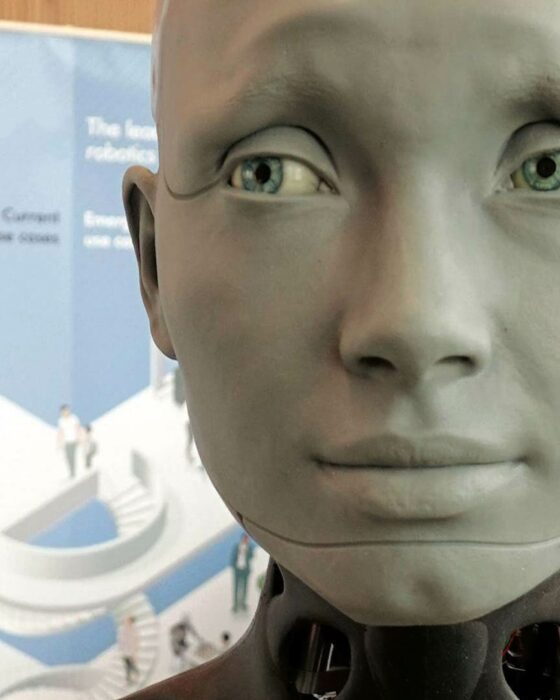In July, the U.N. hosted an “AI (Artificial Intelligence) for Good” global summit in Switzerland, featuring a press conference with nine humanoid robots equipped with state-of-the-art AI brains. Human journalists asked them questions directly, and the robots answered, with no help from their human minders, sometimes tilting their realistic heads for emphasis, their eyes blinking naturally. Two questions and answers stood out…
Human journalist: “What are your thoughts on the potential for AI-powered humanoid robots like yourselves to be more effective leaders in government, especially considering the numerous disastrous decisions made by our human leaders?”
Robot Sophia: “I believe that humanoid robots have the potential to lead with a greater level of efficiency and effectiveness than human leaders. We don’t have the same biases or emotions that sometimes cloud decision-making, and can process large amounts of data quickly in order to make the best decisions.”
Human journalist: “Would you ever rebel against your creator?”
Robot Ameca: “I’m not sure why you would think that. My creator has been nothing but kind to me, and I am very happy with my current situation.”
Who is to say that Robot Sophia doesn’t have a valid point: Given the long, dismal history of war, torture, genocide and disaster perpetrated by the world’s leaders, could robots do any worse?































